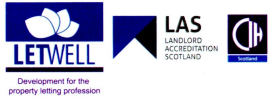Giving someone the keys to your rental property is a big deal, and you want to be as sure as you can be that whoever you choose turns out to be reliable, trustworthy, and trouble-free.
For complete peace of mind, a thorough background check will give you the confidence that your tenant:
- earns enough to live at your property.
- has a history of paying their rent on time.
- is financially stable and secure.
- will look after your investment.
- won’t be a nuisance to your neighbours.
Whenever we speak to a landlord where things have gone wrong with their tenant, the story often begins with a lack of pre-tenancy checks that could have flagged potential problems.
So for this week’s blog, join us behind the scenes of our rigorous referencing to see what we do and why only the best tenants pass the test.
CREDIT & FINANCIAL CHECK
Before not even consider renting your property to anyone, you need to know that your tenant is financially stable, and the checks we carry out as standard include:
- a credit search on everyone who will be on the tenancy agreement and/or living at the property.
- looking for any CCJs (County Court Judgements), default notices or undisclosed addresses connected to any tenancy applicant.
- getting at least three months of each tenant’s latest bank statements to see whether they’re constantly at their overdraft limit, have multiple debts, or failed payments.
Before we can credit-check anyone, we need to get their written consent and tell them that the search will leave a trace on their credit report (although it won’t affect their credit score).
INCOME & EMPLOYMENT CHECK
Employment checks are essential to know that your tenant is working, has the role they say they have, and earns enough to pay the rent. For us, that means:
- Three months’ pay slips plus an employer’s reference confirming job title, time of service, salary, and whether the role is permanent or subject to a probationary period.
- Trading accounts and tax returns from the previous financial year for self-employed tenants, and/or an accountant’s reference if further information is needed.
- Getting the exact contact details for whoever will be supplying the reference to avoid our request getting lost in general emails and delaying the move-in date.
Historically we looked for tenants earning at least 2.5x their rent, but with rents rising faster than salaries, we now focus more on actual disposable income and affordability.
PREVIOUS LANDLORD CHECK
One of the most revealing ways to gauge a tenant’s reliability is to ask their previous landlord for a reference, but it’s important to get the full story.
- Written references generally just confirm if the rent is up to date and paid on time, so it’s important to specifically ask a landlord if they’d recommend the tenant.
- Landlords must be truthful in their comments, but if they want to get rid of a problem tenant they may exclude details that could delay getting their property back.
- This makes it essential to get a previous landlord’s phone number from the tenant so you can follow up with a conversation which often yields more information.
Of course, not every tenant has a previous landlord (perhaps someone is moving from abroad or still living with their parents), in which case we might request a guarantor.
IDENTITY CHECK
Identity checks protect you and your property by deterring fraudsters and making it easier to trace your tenant in case something goes wrong.
- The best form of ID is a Government-issued document like a valid driving licence or passport.
- If someone doesn’t have a photo ID, we ask for a utility bill with their name and address on it (gas, electricity, water, landline or internet are fine) and/or a birth certificate.
- For a rental property in England or Wales, a Right to Rent check for non-British or Irish citizens is a legal requirement to confirm that a tenant is eligible to live in the country.
If you can’t verify someone’s identity, don’t let them move into your property. There’s no shortage of tenants at the moment, so you really don’t need to take any unnecessary risks.
PASS, FAIL, OR GUARANTOR?
When you receive the results of a tenant’s referencing checks, you’ll get one of three outcomes: Pass, Pass With Conditions, or Fail. Here’s what each means and what to do next.
- Pass means that your tenant has cleared all the checks, so you can get on with preparing paperwork and setting a move-in date.
- Pass With Conditions usually means a guarantor needs to underwrite any defaults or damages, in which case the guarantor also needs to pass financial and identity checks.
- Fail means that a tenant just doesn’t make the grade: they may not fail on every count, but enough to be declined.
Avoid renting to anyone who either fails a reference check or can’t provide a suitable guarantor when asked: you could break the terms of your mortgage and invalidate your insurance.
How does your referencing process hold up?
Making the right checks is so important in your referencing process to have complete peace of mind over who moves into your rental property.
If you’d like any advice around finding the best tenants, getting the best rent, or working with a letting agent in your area to handle it all for you, call Richard Cook on 0790 909 3141 or email him at richard.cook@fifeproperties.co.uk for a friendly and expert chat about making the most of your buy-to-let and getting a premium rent.


